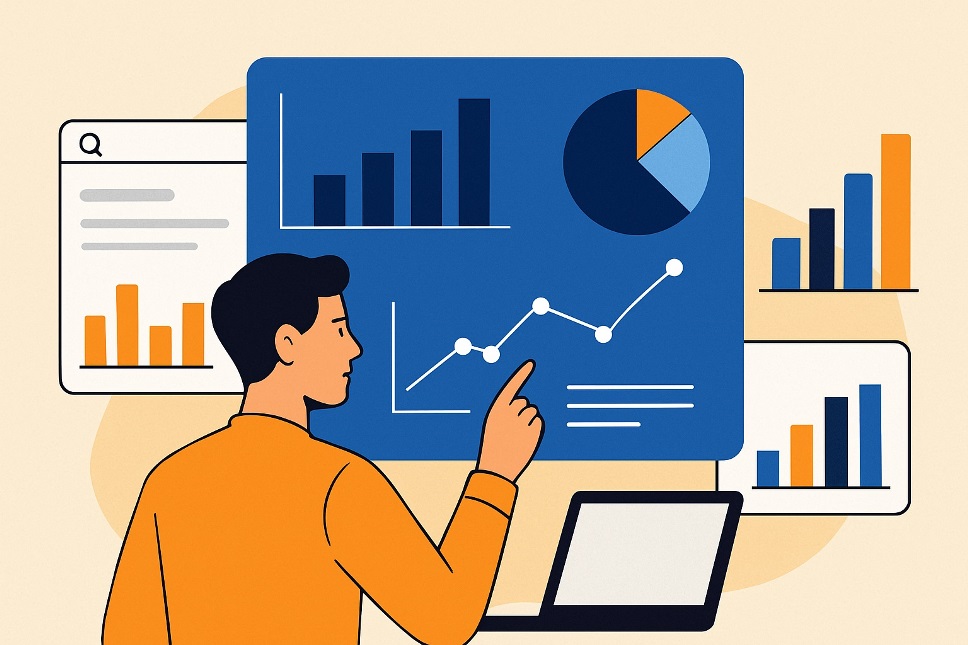
Every swipe, click, and purchase creates valuable information. This data provides insight into customer behavior, improves operations, and helps forecast future trends. Organizations that analyze data effectively gain a strong advantage because they can make decisions based on evidence rather than guesswork. Data analytics is the discipline of turning raw information into meaningful patterns and actionable strategies.
Importantly, data analytics is not reserved for large corporations. Individuals and small businesses can also benefit from understanding how to collect, interpret, and apply data. Developing data literacy enables people to ask better questions, identify trends, and communicate findings clearly. For career changers or professionals seeking growth, learning analytics can open new opportunities across industries.
The Growing Demand for Data Skills
In nearly every sector—finance, healthcare, retail, or technology—professionals who can interpret data are in demand. Job roles such as data analyst, data scientist, and business intelligence specialist have grown rapidly. This trend reflects a recognition that data-driven approaches often lead to improved outcomes, efficiency, and performance.
Examples of real-world applications include:
- Retail: analyzing customer purchase patterns to suggest relevant products.
- Healthcare: using patient records to identify populations at risk and create preventative care programs.
- Operations: streamlining supply chains through demand forecasting.
These cases demonstrate how data-driven decision making creates measurable value.
What You Can Achieve with Data Analytics
Analytics is more than charts or dashboards—it is a structured process of inspecting, cleaning, and modeling data. This allows professionals to uncover hidden trends, diagnose issues, and even predict outcomes.
For instance, a marketing team might analyze campaign data to discover high bounce rates on mobile landing pages, revealing the need for a better mobile experience. In manufacturing, teams may use production data to detect bottlenecks and improve efficiency. In finance, predictive models can help assess risk or forecast revenue. The ability to analyze and interpret information provides a foundation for smarter strategies in any domain. To gain the versatile skills and practical experience needed to drive these outcomes, professionals should enroll in the Heicoders Academy data analytics course and start building this essential foundation today.
Core Components of Data Analytics Education
A strong foundation in analytics involves both theory and practice. Essential skills include:
- Programming: Python is widely used due to its simplicity and libraries such as Pandas, NumPy, and Matplotlib.
- Databases: SQL is a fundamental tool for working with structured data.
- Statistical methods: applying the right techniques to test hypotheses and validate findings.
- Communication: storytelling with data, which involves presenting insights clearly and persuasively.
Effective learning programs balance technical skills with the ability to frame business problems as analytical questions and communicate results to diverse audiences.
Also Read: The Future of Help Desks: Automated Conversations
From Learning to Application: Building a Portfolio
Hands-on projects are critical for applying concepts. A professional portfolio demonstrates both technical competence and problem-solving ability. Projects might include:
- Analyzing public datasets for patterns.
- Building predictive models using historical sales data.
- Designing dashboards to track key performance indicators.
Each project should include a clear description of the problem, the approach, the tools used, and the conclusions. This not only strengthens understanding but also provides tangible evidence of capability when seeking employment.
Choosing the Right Path to Learn
The best way to learn depends on individual preferences and goals. Some thrive in self-paced study, while others benefit from structured, instructor-led courses. Effective programs often include:
- An updated curriculum aligned with industry needs.
- Opportunities for hands-on practice and real-world case studies.
- Mentorship or peer collaboration to reinforce learning.
What matters most is selecting a learning approach that combines theory with practical application, ensuring learners gain both technical and transferable skills.
Final Analysis
Data literacy has become a core professional skill in today’s digital environment. Organizations and individuals alike benefit from transforming raw data into insights that guide better choices. By learning essential tools like Python and SQL, applying statistical methods, and practicing data storytelling, professionals can position themselves for long-term success.
A portfolio of applied projects demonstrates readiness for real-world challenges and provides evidence of skills beyond a résumé. Ultimately, data analytics is more than a technical discipline—it is a way of thinking critically, solving problems systematically, and making confident choices backed by evidence.